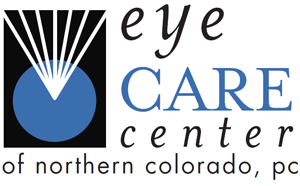Common Eye Conditions
Common Eye Concerns
Having your eyes examined annually is one of the most important things you can do for your health! At the Eye Care Center of Northern Colorado we do more than just determine your prescription for glasses and contact lenses. We see patients daily for a variety of eye concerns. We strive to provide you the right treatment option as soon as possible before you experience any impact on your vision.
Our facilities in Longmont, Lafayette, Boulder, and Greeley offer the most advanced treatment options for eye health, surgery and vision correction. We have invested in the latest eye care technologies to bring you state-of-the-art eye diagnostic and surgery procedures.
Common Eye Symptoms
Dry Eyes
People with dry eye syndrome may experience irritated, gritty, scratchy, or burning eyes, excess watering, and blurred vision. The level of discomfort increases if you wear contact lenses or live in a dry climate like we do in Colorado. Learn more about our comprehensive dry eye syndrome treatment.
Learn more about our comprehensive dry eye syndrome treatment.
Crossed Eyes
Crossed eyes, or strabismus, is a condition in which both eyes do not look at the same place at the same time. It usually stems from poor eye muscle control or farsightedness.
Eyelid Inflammation
Eyelid inflammation, or blepharitis, is usually associated with an overgrowth of bacteria that live along the margins of the eyelids and at the base of the eyelashes. This overgrowth can cause burning or stinging eyes, crusty debris at the base of eyelashes, irritated and watery eyes, itchy eyelids, or a “gritty”/foreign body sensation.
Lazy Eye
Lazy eye, or amblyopia, is reduced vision in one eye when the weaker or “lazy” eye wanders inward or outward. This condition usually develops in children between birth up to age 7 years. Long-term problems with your child’s vision can be prevented with early diagnosis.
Flashers/Floaters
Flashes of light or floating specks may seem like objects outside of the eye, but it’s actually happening within your eye. Most of the time, eye floaters (dark shadows/spiderwebs in your vision) are not a sign of anything harmful, and simply looking up or down can move them out of your field of vision. However, if they are accompanied by eye flashes (sparkles or light streaks in your side vision), it may be a sign of retinal detachment, a serious condition that can lead to severe vision loss. Because of this risk, we recommend you schedule an immediate appointment if you are experiencing this.
Involuntary Eye Movements
Involuntary eye movements, or nystagmus, is a condition in which the eyes make repetitive, uncontrolled movements. These movements often result in reduced vision and depth perception and can affect balance and coordination. This condition (also called “dancing eyes”) occurs when the part of the brain or inner ear that regulates eye movement and positioning doesn’t function correctly.
Pink Eye
Pink eye, or conjunctivitis, is the inflammation of the clear lining of the surface of the eye, called the conjunctiva. Allergic, bacterial, and viral types of pink eye can all result in swollen eyelids, redness, itchiness, and watery eyes.
Many of these symptoms can be an indicator of a serious issue.
The sooner you can have an exam and understand what’s causing these symptoms, the more likely you won’t experience long term negative impacts.
We provide treatment for
Cataracts
Cataracts, a clouding of the normally clear lens of the eye, are the leading cause of vision loss in adults over the age of 55 and the leading cause of blindness worldwide.
Learn more about our cataract treatment options.
Glaucoma
Glaucoma is a complex disease in which damage to the optic nerve leads to progressive, irreversible vision loss. Early diagnosis and management are key prevention steps.
Retinal Disorders
The retina is the thin tissue in the back part of your eye that senses light and transmits images to the brain. Retinal disorders affect your vision. We treat the following retinal disorders:
- Macular degeneration
- Diabetic retinopathy
- Retinal detachment
- Macular pucker
- Macular hole
- Retinal vein or artery occlusion
- Retinal tumors
Far or Near Sightedness
- Contacts
- Glasses
- LASIK
- Monovision
- Visian ICL
Corneal Disorders
Corneal disease, a serious condition, can cause clouding, distortion, scarring and eventually blindness. We treat these corneal diseases:
- Keratoconus
- Pterygium
- External & Infectious Eye Disease
Laser Vision Services
We use OptiLASIK™ Laser Vision Correction to provide a highly personalized LASIK procedure.
